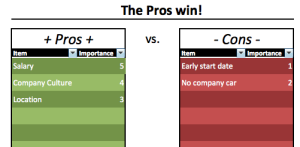
As an independent contractor or self-employed freelancer, your level of success depends on your ability to create and sustain relationships. The number of clients you have, the stream of work you produce and the revenue you earn are all contingent on the scope of your business network.
The more dedicated and intentional you are about forming quality connections, the more professional growth, impact and advancement you’ll experience. “By growing your network, opportunities arise, business partners appear, connections are made and trust is garnered in the local community,” says Sharon Schweitzer, best-selling author and consultant.
And in the freelance and entrepreneur world, the service you’re promoting is ultimately yourself—which makes it even harder. If you’ve ever tried to write a personal bio, you know what I mean. Promoting yourself can be challenging, but successful business owners and freelancers know it’s necessary.
As you attend various networking events to grow your network of potential client and those who can support your efforts, keep these tips in mind.
Come Equipped with Business Cards
Every networking event is a chance to gain new clients. As such, you need to present the most professional version of yourself. That version doesn’t just dress well and act polite—that version of yourself always has business cards too. This gives everyone you meet something to remember you by, while showing that you take your work seriously.
Remember that the design of your cards should not only be polished, with readable text and all the right information. It should reflect your brand and personality as well. Check out these interesting business card ideas to find inspiration and a unique style that matches who you are and the work you do.
Pro tip: Find a way to make your business card actionable or helpful. For example, if you’re a personal trainer, you could include a workout on the back of your business card. Not only is this more memorable, but you’re already helping the person who you just met—and you haven’t even done anything yet.
Release Fear
For some people, attending a networking event is stressful. Not only do you have to talk to people you don’t know—but you have to show them that you’re successful and worth connecting with. This is where the fear of personal failure, which was the number one fear among 1,000 Americans polled, can slow you down.
Successful freelancers push this fear aside to present a confident, successful person. To release any personal fears holding you back, use these tips from The Muse:
- Choose “non-lame” events and stick with events you’re excited to attend
- Stop saying “networking,” which makes it feel intimidating
- Volunteer at the event instead of going as an attendee
- Research the roster ahead of time so you know who will be there
- Reward yourself afterward, I.E. “If I give away all my business cards, I’ll…”
- Have conversation starters prepared
- Approach people in pairs, which may feel less intimidating
Pro tip: Practice your power poses before going to a networking event to boost your confidence. Amy Cuddy, a social psychologist, suggests that standing in these power postures, and using similar body language, boosts your confidence, even when you don’t feel confident. Learn the different power poses in her Ted Talk.
Seek Contacts to Fulfill Specific Needs
One of the many advantages going to a networking event is that it attracts different people with varying degrees of experience, interest and expertise to one place. As a freelancer, this means there are chances to meet a wide variety of people who could help you, from developers for your website to potential business clients.
Successful freelancers define what they’re looking for before they step foot through the door. I.E. a mentor, client, partner, or even just a fellow creative to bounce ideas off. Keep these goals in mind as you build connections at the event and afterward. Global entrepreneur Ted Rollins suggests:
“As these relationships grow, consider how they fit into that burgeoning ‘why.’ Someone could be more valuable in expanding your business, while another person might serve you best in a mentorship role.”
Pro tip: Stay in touch with everyone, even if you don’t need their help right now. This is one of the best times to be in touch with someone because it gives you a chance to help them instead. When the time comes to reach out for a request, you’ve done the work to maintain that relationship over time.
Use the Skill of Active Listening
This interpersonal skill is highly regarded in professional settings because it shows other people that you want to form a reciprocal relationship instead of just a self-serving one. Mind Tools describes an active listener as someone who makes a “conscious effort to hear not only the words another person is saying but, more importantly, to understand the complete message being sent.”
To practice this at a networking event, approach people with an open stance, hold eye contact, remember to smile and use receptive body language—freshen up on receptive body language with this guide from Skills You Need.
Don’t forget to ask questions that start with “Who?” “What?” “How?” and “Why?” The more attentive you are toward someone, the more they’ll trust your motives.
Pro tip: Practice active listening in every area of your life—with your friends, your family and your spouse. Work toward being an active listener, even in the simplest of conversations, so it comes easier to you when it matters most, like when you’re meeting a potential investor or business partner.
Send a Follow-Up Message Promptly
Communication is critical to solidifying your new potential relationships and successful freelancers follow-up within 24 hours. When you do, express your gratitude for their assistance, offer any other relevant information that wasn’t shared in person, and reiterate what a pleasure it was to meet them.
Not only does prompt correspondence keep your name fresh in people’s minds, it establishes you as a genuine individual whom others feel secure doing business with. If the context is appropriate, you can even add personal touches like inquiring about a recent vacation they took or mentioning a common interest you share to express that you’re invested in them relationally.
Feeling uninspired? Check out these follow-up email templates.
Pro tip: After following up via email, connect with anyone that stood out to you on LinkedIn. This is a second chance to remind them of who you are, and once connected, you can casually interact via “liking” posts and commenting. This ensures you stay top of mind and makes it even easier for them to reconnect with you at any point.
Step Into the Networking Arena
Learning how to network effectively is an asset you can take straight to the bank. Move outside your comfort zone, engage with other professionals, and use these pointers to maximize your efforts and form connections that will provide value for many years to come.
BIO: Jessica Thiefels has been writing for more than 10 years and is currently a full-time freelance writer and self-employed content marketing consultant. She’s been featured in Forbes and Business Insider and has written for Virgin, Glassdoor, Lifehack and more. Follow her on Twitter @Jlsander07 and connect LinkedIn.


